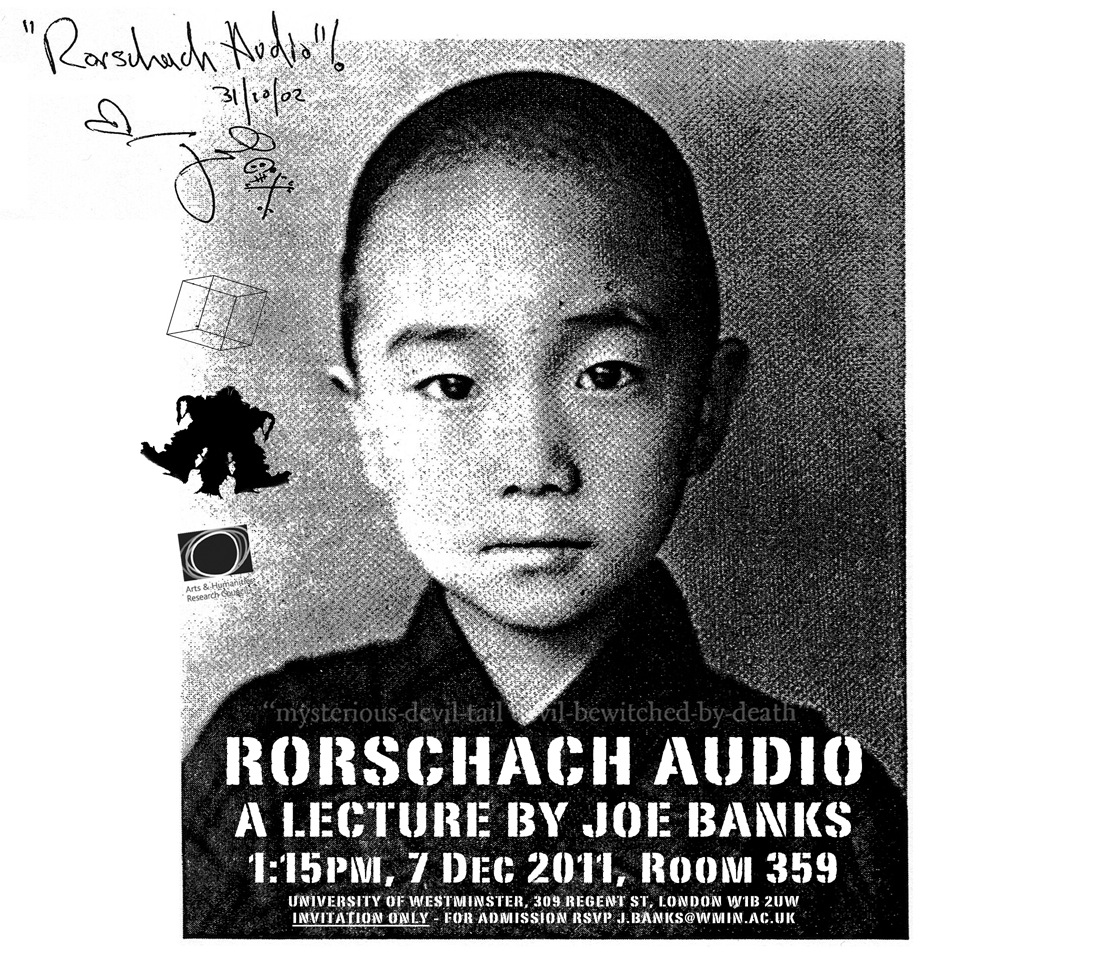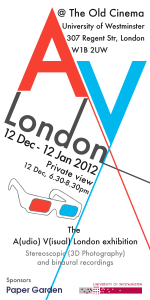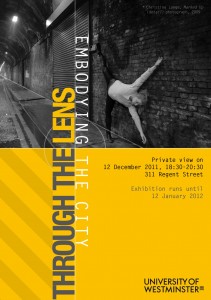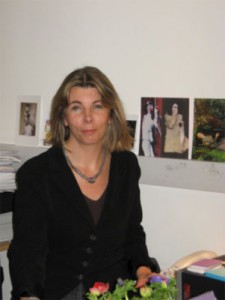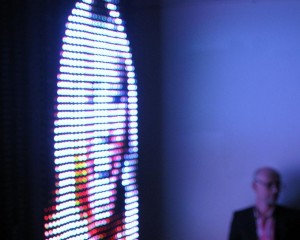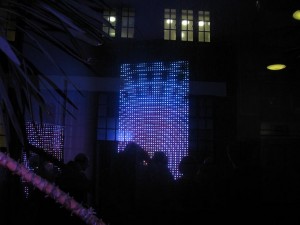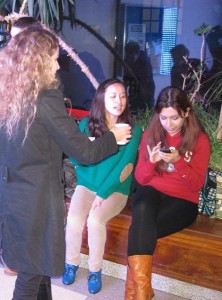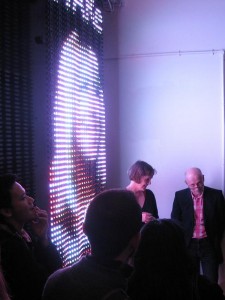Posts from November 2011
Anne Witchard talk on Lao She, Weds 7 December
Tagged as China, Literature, London, Modernism
.jpg)
The IMCC’s Anne Witchard will be speaking about her forthcoming book at the following event organised by our friends in the Contemporary China Centre:
Wednesday 7 December 2011, 4.30-6.30pm
Westminster Forum, Fifth Floor, 32-38 Wells Street, London W1T 3UW
‘Lao She: A Chinese Writer in Modernist London’
Anne Witchard (University of Westminster)
Chinese cultural and intellectual texts engaged in various ways with Western constructions of modernism. Of these exchanges and encounters, my focus in this paper will be on the early life and work of the famous Chinese novelist and short story writer, Lao She (1898 – 1966). Lao She was uniquely positioned in his engagement with specific conditions of modernity and nationhood both in Britain and in China. By birth a disenfranchised Manchu, he lived and worked in London during the late 1920s, a period seen as the apex of high modernism and his writing registers this interaction in ways that suggest we rethink his work beyond the parameters of the socialist realist tradition to which, chiefly because of his proletarian magnum opus, Rickshaw Boy (1936), it has largely been confined. Reading Lao She as an incipient modernist, initiating in China new subjects and new styles of writing in the endeavour to remake the sensibility of the Chinese people, serves also to unsettle Eurocentric considerations of modernism as exclusively Western, its place of origin unquestionably the metropolitan West.
Anne Witchard teaches in the Department of English, Linguistics and Cultural Studies at the University of Westminster. She specialises in representations of China and the Chinese in early-twentieth-century Britain (see her book Thomas Burke’s Dark Chinoiserie, Ashgate, 2010; and most recent of various papers, a chapter in the collection Chinatowns in a Transnational World, Routledge, 2011). Her book Lao She, London and China’s Literary Revolution will be published in Autumn 2012 by the University of Hong Kong Press.
All welcome, but non-Westminster attendees should register in advance with Derek Hird: d.hird@westminster.ac.uk
Rorschach Audio talk, Wednesday 7 December 2011
Tagged as art, sound art, technology
‘Rorschach Audio: Mysterious-devil-tale, Devil-bewitched-by-Death’
Wednesday 7 December 2011, 1.15pm – 2.45pm
Room 359, University of Westminster, 309 Regent Street, London W1B 2UW
Following on from the “Rorschach Audio” lecture demonstration presented to the IMCC in March 2011, and, in particular, that lecture’s discussions of Jean Cocteau, Salvador Dali, EH Gombrich, Primo Levi and Leonardo da Vinci, visual and sound artist Joe Banks presents further explorations of the influence of “Rorschach Audio” phenomena on contemporary literature and creative art. This presentation directly extends the material discussed in the previous lecture, so any guests not familiar with the earlier talk are encouraged to read the “Rorschach Audio” research publications available here…
http://muse.jhu.edu/journals/lmj/summary/v011/11.1banks.html
http://www.slashseconds.org/issues/002/004/articles/jbanks/index.php
Non-Westminster staff and students should RSVP Joe Banks at: j.banks@wmin.ac.uk
You are invited to the Private View of two exhibitions (including drinks reception):
AND
Monday 12th December 2011, 18:30 onwards
309 Regent Street Gallery, University of Westminster, London W1B 2UW
‘AV London’ and ‘Through the Lens: Embodying the City’ are curated by students on MA Cultural and Critical Studies, MA Museums, Galleries & Contemporary Culture, and MA Visual Culture, University of Westminster
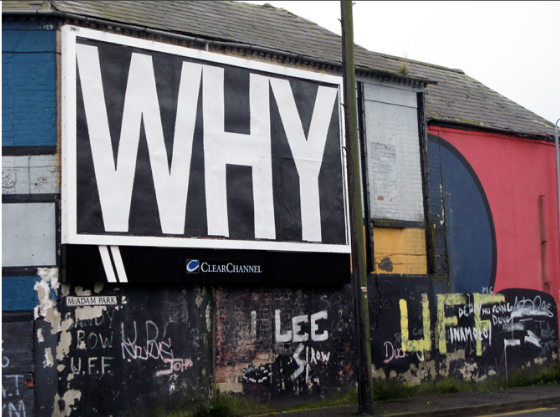
Tuesday 22nd November, 4-6pm
Westminster Forum, University of Westminster, 32-38 Wells Street, London W1T
Pascal Gielen (Groningen University, The Netherlands)
‘Mapping the Community Arts: Artistic Autonomy, Repressive Tolerance and Pastoral Power’
In recent years there has been increased attention to so-called ‘socially engaged art practices’. Equipped with a sense of urgency and intent, artists and curators develop work with the support of communities or groups to tackle political and social issues. While the success of these projects are not easily measurable, they often reiterate the role of artist/curator as protagonists of specific forms of social change, which posits a direct contrast to recent activism which carefully distances itself from any leader-based political organizational categories.
Pascal Gielen, co-editor of the recently published volume Community Art, will draw out a critical cartography of community art and will speak about the power and impotencies of this phenomenon. Since modernity, art and community, artist and social work have had an ambivalent relationship, can art have a role in building communities? What is the political potency of forms of art that strive to integrate individuals and social groups? Pascal Gielen is Professor of Sociology of the Arts and Director of the research centre Arts in Society at Groningen University. His publications include The Murmuring of the Artistic Multitude: Global Art, Memory and Post-Fordism (Valiz, 2009) and the co-edited Being an Artist in Post-Fordist Times (NAi Publishers, 2009).

Wednesday 23 November, 1.15pm – 2.30pm
Room 359, 309 Regent Street, University of Westminster
Samuel Thomas (Durham University)
“The Gaucho Sells Out: Thomas Pynchon, Nation Building & Argentina”
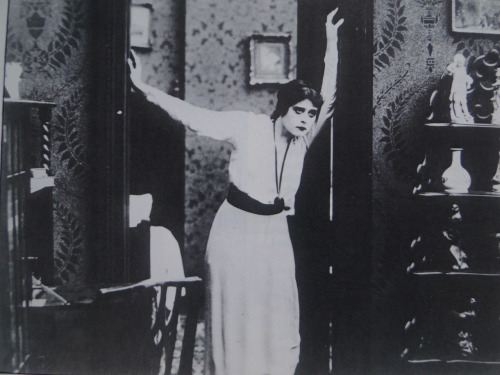
Wednesday 16 November, 4.15pm – 5.45pm
Room 312, Wells Street, University of Westminster, London W1T
‘Pragmatic Implicature and the novel’
Ruth Schuldiner, University of Oxford
This paper will discuss the sustained use of implicature to communicate central, unambiguous elements of plot in fiction novels; specifically, it will look at instances in which a reader’s understanding of an implicitly communicated event is integral to their understanding of the remainder of the narrative. It is proposed that, in third-person narratives, a perceived context of fictionality is depended upon for the construction of some of these implicatures: many of them exploit the perceived omniscience of the narrator, and by extension the fictionality of the text. This conclusion feeds into a broader argument concerning the possible differences associated with reading fictional vs. nonfictional texts, or how an assumed context of either fictionality or nonfictionality affects readers’ interpretations of individual utterances and the coherence of narratives as a whole. When an author chooses to communicate central narrative information through implicature, the reader is faced with the important puzzle of why an omniscient persona would opt for an inarticulate mode of communication. It is this implicitly posed question that emphasizes the relevance of the implicatures to their context, dispersing the ambiguity of superficial ellipses. The paper discusses excerpts from M.E. Braddon’s Lady Audley’s Secret to evidence the argument.

Words and Wars
Group for War and Culture Studies Research Seminar
Monday 21 November 2011, 5.30-7.30pm
Room 152, University of Westminster, 309 Regent Street, London W1B
Adam Piette (University of Sheffield), “Sputniks, Ice-Picks, KGB: Nabokov’s Pale Fire”
Adam Piette is the author of Remembering and the Sound of Words: Mallarmé, Proust, Joyce, Beckett and Imagination at War: British Fiction and Poetry, 1939-1945. His latest book, The Literary Cold War, 1945 to Vietnam (Edinburgh University Press, 2009), is a study of the psychological and cultural impact of the Cold War on the imaginations of citizens in the UK and US. The Literary Cold War examines writers working at the hazy borders between aesthetic project and political allegory, with specific attention being paid to Vladimir Nabokov and Graham Greene as Cold War writers. The book looks at the special relationship as a form of paranoid plotline governing key Anglo-American texts from Storm Jameson to Sylvia Plath and Ted Hughes, as well as examining the figure of the non-aligned neutral observer caught up in the sacrificial triangles structuring cold war fantasy.
Alan Morrison ( University of Westminster), “Virginia Woolf: War and Patriarchy”
Alan Morrison is also a Research Associate at the Smithsonian’s National Museum of American History, and teaches on the Museum Studies Master’s Program at Johns Hopkins University. He is currently working on education and exhibition programmes linked to the centenary commemorations of World War I.
Including Book Launch for Adam Piette, The Literary Cold War, 1945 to Vietnam
Entrance FREE but RSVP Dr Caroline Perret: C.Perret@westminster.ac.uk or tel. 020 7911 5000 ext. 2307.
Back in July, IMCC Visiting Fellow Dr Young-Paik Chun from Hongik University in Seoul programmed an event on Korean contemporary art on British soil at London’s Korean Cultural Centre. Details here.
Following the event, a report entitled ‘Situating Korean Fine Art Practice in a Western Context’ written by Dr John Cussans came to our attention. It is attached here, many thanks to John for making it available, and our apologies for the delay in posting it:
It is a pleasure to announce Dr Victoria Walsh as a Visiting Research Fellow at the Institute for Modern and Contemporary Culture, University of Westminster, for 2011-12.
As a Visiting Research Fellow and Co-investigator of the Tate research project ‘Art School Educated: Curriculum Development and Institutional Change in UK Art Schools 1960-present’, Victoria will be developing her work on the emergence and impact of practice-led research within the Institute. This position and partnership builds on Westminster’s longstanding collaboration with the Tate across research and programming including the current collaboration on the MA Museums, Galleries and Contemporary Culture and the Johns Hopkins Summer School programme.
Victoria is also Visiting Research Fellow in the Arts and Media Department at London South Bank University which builds on her role as Co-investigator of the AHRC funded-project ‘Tate Encounters: Britishness and Visual Culture’ (2007-10) which was led by LSBU, and includes the completion of the project’s publication Post-critical Museology: Theory and Practice in the Art Museum (Routledge 2012).
Prior to this, Victoria was Head of Adult Programmes at Tate Britain (2005-11) where her work spanned both the Research and Learning departments. Previously, she worked as a freelance curator, project manager and research consultant in the fields of visual arts and architecture including the project-management of the competition to select an architect for Tate Modern, the relaunch of the Fourth Plinth Project in Trafalgar Square for the Mayor’s Cultural Office, and as Curatorial Consultant the exhibition ‘Open Systems: Rethinking art since 1970’ (Tate Modern, 2005). She holds an MA in Art History (Courtauld), in Curating (RCA 1995) and a doctorate on the artist Whistler (Oxford Brookes 1996) and has published on post-war British artists Nigel Henderson, Francis Bacon, Gilbert & George and architects Alison and Peter Smithson. As Programme Consultant on the 5th Year Diploma Course ‘History and Theory’ at the Architectural Association she is currently teaching the ‘The Independent Group: Tracing the Parallels in Visual and Urban Culture’.
We really do look forward to working with Victoria in the forthcoming year.

Our friends in the Africa Media Centre at University of Westminster, in conjunction with London African Film Festival, are organizing a conference entitled: ‘Women and Film in Africa Conference: Overcoming Social Barriers’
Saturday 19 and Sunday 20 November 2011
University of Westminster, 35 Marylebone Road, London, NW1
Confirmed Keynote Speakers:
Jihan El-Tahri is an Egyptian-French writer, Director and Producer of Documentary films. Her award-winning films include documentaries filmed in the Congo, Angola, Zambia, Tunisia and other parts of the world, including Saudi Arabia. Her latest film Behind the Rainbow deals with the transition of the ANC from a liberation organization into South Africa’s ruling party.
Yaba Badoe is a Ghanaian-British documentary maker, journalist and novelist; she is a visiting scholar at the University of Ghana. Her directing and producing credits include the award-winning documentary The Witches of Gambaga the story of a community of women condemned to live as witches in Northern Ghana.
“Women and film in Africa: Overcoming Social Barriers” is the exciting topic of the University of Westminster’s Africa Media Centre’s next event to be held at 35 Marylebone Road, London from 19-20 November 2011. It will deal with the contemporary and historical role played by women in the film, television and video industries in Africa. From Arab North Africa, West Africa, Central and East Africa, through to Southern Africa, women have emerged from the double oppression of patriarchy and colonialism to become the unsung heroines of the moving image as producers, directors, actresses, script writers, financiers, promoters, marketers and distributors of film, television and video in postcolonial Africa. Sadly, such immense contributions by women are underrepresented, both in industry debates and academic research. There are now many cases in which African women in front of and behind the camera have overcome social barriers, yet this is often sidelined. This conference delegates will include students, practitioners, academics and researchers to debate how women have contributed to film, television and video markets in Africa from the pre-colonial, colonial and postcolonial eras. It is expected that the event will help focus existing industry and academic work on the ways female audiences in Africa have engaged with film, television and video texts. The conference will include a session with leading female filmmakers.
REGISTRATION IS NOW OPEN
Full conference: Standard rate £135. One day rate £95
Full conference: Student rate £55. One day rate £40.
Fees cover: conference pack, lunch, coffee/tea, a wine reception and administration fees.
Please follow the link: http://www.westminster.ac.uk/news-and-events/events/2011/women-and-film-in-africa-conference-overcoming-social-barriers

Thursday 8 December 2011, 7pm
Whitechapel Gallery, 77-82 Whitechapel High Street, London E1
Price: £7.00 / £5.00 concessions (includes free glass of wine).
This season’s Whitechapel Salon organised by the IMCC in collaboration with the Whitechapel Gallery is on ‘Cultures of Capitalism’. Our third discussion focuses on imagining the Spaces of Capital. How can art and politics image, represent or map the spaces of contemporary capitalism? And, in the light of current spaces of occupation, what critical and political possibilities for resistance or opposition might such imaginings contain? Participants include Alberto Toscano, Senior Lecturer in Sociology at Goldsmiths and author of The Idea of Fanaticism, and Andy Merrifield, author of Metromarxism and Dialectical Urbanism, along with a representative from the Haircut Before the Party collective. Chaired by David Cunningham.
Book your ticket at: http://www.whitechapelgallery.org/shop/product/category_id/22/product_id/1027?session_id=1320678264848dfa9cc85be835a3493e662f207489
Another fine video from the Institute’s AHRC Research Fellow Joe Banks (Disinformation):
Film copyright © Joe Banks & Poulomi Desai 31 Oct 2011
Headphones or external loudspeakers essential
The Canadian psychologist Albert Bregman’s theory of Auditory Scene Analysis describes how the human mind is able to identify, focus on, isolate and extract streams of actually or potentially meaningful sound information, which it recognises as emanating from discreet sources, using analysis of what amounts to the musical content of specific “melodic streams” within environmental noise. In terms of evolutionary biology, the theory suggests that our capacity for appreciating music may have evolved at least in part as a by-product of the mechanism that enables us to identify sound-streams that come from, say, a distant river, particular types of bird-song, or the call of a potentially hostile predator etc; and in human communications this faculty is most obviously in evidence as a contributory factor in enabling us to perceive individual speakers in crowded social environments (the Cocktail Party Effect). In terms of everyday experience, the isolation of such streams may seem deceptively simple, but in information theoretic and signal processing terms, the level of computational power required to extract such invariants* from the distorting influences of complex and rapidly-changing real-world sound environments still challenges engineers and computer scientists. Problems associated with extracting invariants from noisy environments are of particular relevance to air traffic control, military fighter and helicopter communications and battle management systems. Generalities aside, the soundtrack used in the Disinformation + Usurp “Sun Rays” film is a direct recording of the real sound-ambience of the film’s location, “composed” using sharp graphic-equalisation only, to reproduce the subjective experience of the melodic streams that were perceived in the extraordinarily atmospheric ambience of that underground space (and, totally coincidentally, the title of this film, which is taken from the footage itself, is also the name of the Indian Air Force military aerobatics demonstration team).
Filmed in New Delhi, Oct 2011. (J. Banks, IMCC Westminster, 1st Nov 2011).
*The term “invariant” was coined by the American psychologist JJ Gibson

At the Workface: A Talk by Fred Lonidier
Tuesday 13 December 2011, 3.30-5.30pm
Fifth Floor, 32-38 Wells Street, University of Westminster, London W1T
Seminar: new arts and trade unions partnerships
Proposals for a national documentation project and AHRC research network focused on promoting new creative synergies and campaign strategies connecting the unions, social networking groups, NGOs, and arts sectors.
Fred Lonidier is one of the leading pioneers from the late 1960s onwards, of the arts and trade union movement in the USA. He studied at Yuba College and San Francisco State (graduate work in sociology and photography), and later joined the University of California at San Diego Faculty in 1972. His work continues to deal with the possibilities of photography applied to trade union campaigns for social justice, labor history, and social change. He has also been the guiding energy behind the pioneer US Trade Union sponsored Labor Link TV which cablecasts on three channels in San Diego County. His work has recently focused on workers rights and cross-border labor struggles and solidarity between U.S. and Mexican workers.
Admission is free, but please book a place in advance from Dr Stefan Szczelkun: szczels@wmin.ac.uk
Coordinated by Littoral Arts Trust in association with Critical Network, Strategies for Free Education, and the IMCC, University of Westminster.
Usurp + Disinformation – Neurogenesis + सूकिर+ Jean Genet
Tagged as music, performance, sound art

SCREAM HOWL SPEAK!
Kusum Normoyle, Alan Tomlinson, Steve Beresford + Disinformation
Live at Usurp, Tues 8 Nov 2011, 7pm sharp
Usurp Gallery, 140 Vaughan Road, London HA1 4EB
What is the connection between the works of French burglar and prostitute Jean Genet and of the 19th century Swiss crystallographer Louis Albert Necker? As an articulation of Jean Paul Sartre’s discourse on Genet’s embodiment of “the negative”, Disinformation remixes audio samples from the final interview with one of modern France’s most notorious writers, exploring perceptual ambiguities which link experiences of auditory and visual illusions.
Alan Tomlinson is a trombonist “who manages to be simultaneously the best & the funniest you have ever seen”. Alan was a long time member of Barry Guy’s London Jazz Composers Orchestra, has his own trio with Dave Tucker and Phil Marks, a trio in Berlin, and a duo with Romanian poet Virgil Mihaiu. Recent solos have been with a glass trombone, accompanying a fish & chip van and in the River Seven.
Kusum Normoyle works with extended vocal technique and noise for both performance and installation. Central to her practice is the idea of public space, intervention, and the displacement of normal expectations of the female body and voice, performing brief high-intensity vocal incursions which are extremely physical, dragging the audience into a hard, fast displays of screaming, amplification and feedback.
Internationally known as a superb free improviser on piano and electronics, Steve Beresford also composes scores for feature films and numerous TV shows and commercials. Steve has worked with hundreds of musicians, including Christian Marclay, Derek Bailey, Han Bennink, Ivor Cutler, Ray Davies, Najma Akhtar, Evan Parker, Adrian Sherwood, Otomo Yoshihide and John Zorn.
Further info at: http://www.usurp.org.uk/events/scream_howl_speak/
See: https://instituteformodern.co.uk/2011/neurogenesis-by-disinformation-usurp-signature-version
First Blip Prize for Creative Technologies
Tagged as technology, Urban, visual culture
We are pleased to report that the winner of the first Blip Prize for Creative Technologies was announced last night. The prize is awarded, courtesy of Blip Creative, to the best student project design for the IMCC’s new public display screen at Wells Street. The 2011 winner was Sophie Meter for her beautiful butterfly animation. Runners up were Kristian Agustin, Eleni Tziourtzia, David Itzcovitz and Yen Ooi. The winning videos can be seen (when opened in firefox) at http://www.blipcreative.com/blog.html Or, of course, you can check them out live on the corner of Wells Street and Booths Place.
The Blip Prize is the latest stage in the IMCC’s development of exciting content for the extraordinary state-of-the-art wall-hanging LED installation that is our contribution to The International Distributed Display Initiative, and which is part of the Institute’s New Media Theory research project, coordinated by Peter Cornwell at Blip with Alison Craighead and David Cunningham at the IMCC. Using an interface that has been designed such that no prior programming skills are assumed, staff and students will be making work for this experimental new media laboratory that will allow them to explore in hands-on fashion what it means to translate, phenomenalize, or even perform media-theoretical issues as, and in, new media.
Watch this space!
UPDATE: Video of the awards ceremony courtesy of David Itzcovitz:
Fictions of the Not Yet
Tagged as Literature, novel, science fiction, The Future, time

Wednesday 9 November, 1.15pm – 2.30pm
Room 359, 309 Regent Street, University of Westminster
Caroline Edwards (University of Lincoln)
‘Fictions of the Not Yet’
As the first decade of the twenty-first century comes to a close, there is a growing critical awareness of the current fascination with alternative and future worlds in contemporary British fiction. In addition to the continuing popularity of – and growing scholarly interest in – speculative and genre works, an emerging body of “literary” fictions is revealing a wide-ranging preoccupation with narratives of apocalypse, transmigration and haunting. Writers like David Mitchell, Jeanette Winterson, Jim Crace, John Burnside, Marina Warner, Maggie Gee, Jon McGregor and Sam Taylor are thus shifting the parameters of realist literary fiction and its generic borrowings, and in the process articulating a shared concern with the question of temporality. We need to develop a new strategy of reading such fictions in order to examine the formal innovations executed by these visions of temporal alterity and futurity. This paper will outline a refunctioning of Ernst Bloch’s category of the “Not Yet” (Noch Nicht) in order to provide a methodological framework that can draw out the distinctly utopian implications that are prevalent in the contemporary British novel. This refunctioning not only reconsiders the relationship between philosophical discourse and narrative imaginaries, but also helps us outline the distinctive structural, thematic and stylistic characteristics shaping an emerging caucus of fictions.
Ranciere review
Tagged as Literature, radical philosophy, Theory

David Cunningham’s review of Jacques Ranciere’s The Politics of Literature, published in the latest issue of Radical Philosophy, is currently up as a freebie on the website. You can read it here: http://www.radicalphilosophy.com/uncategorized/flaubert%e2%80%99s-parrot


The Institute for Modern and Contemporary Culture
University of Westminster Department of English, Linguistics and Cultural Studies
32-38 Wells Street, London W1T 3UW. United Kingdom.

